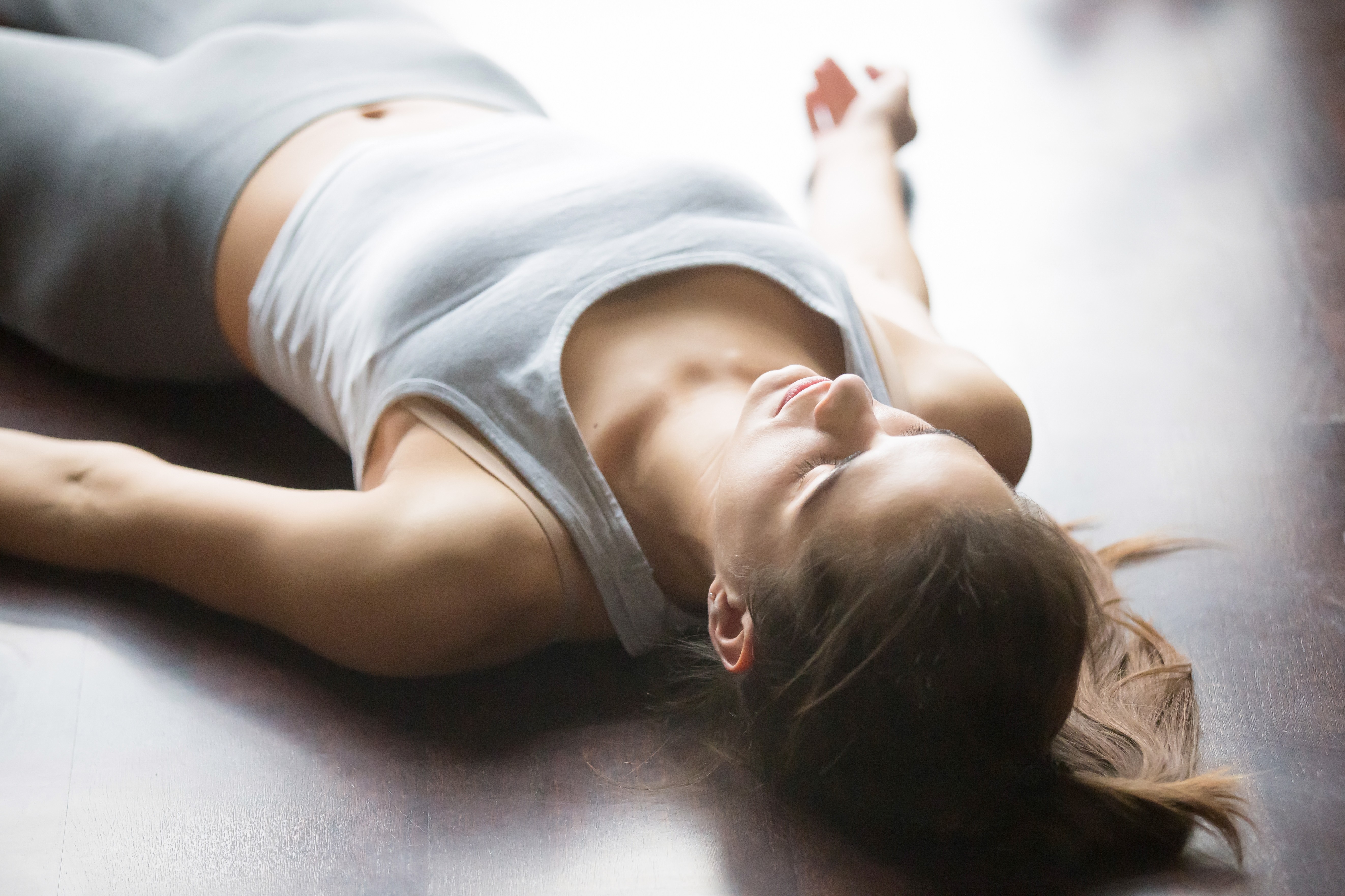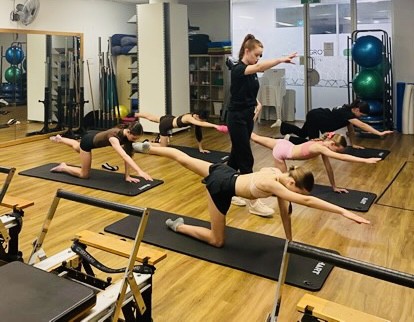March 2024 Newsletter
Welcome to our March newsletter. We are highlighting the importance of good sleep this month as we celebrate Sleep Week
on the 10 – 16th March
There is an important connection between your sleep and your health and well-being and some habits can help you become your best slept
self.
As we highlight Sleep Awareness, it is essential to reflect on the profound impact that quality sleep has on our overall health and well-being. In our fast-paced and digitally-driven world, the significance of sleep often takes a backseat, leading to a myriad of health issues.
This annual awareness week serves as a timely reminder to prioritize and understand the crucial role that sleep plays in maintaining a healthy lifestyle.

We have stocked up on our favourite sleep aids – Amazing Oils Magnesium products and great pillows. Talk to your physio or our admin team about the Magnesium products and how they can help your sleep – we love the Sleep lotion that includes lavender and camomile !
Have a great month – Jules x
$60 ADD ON OFFER FOR INITIAL PHYSIO BOOKINGS IN MARCH
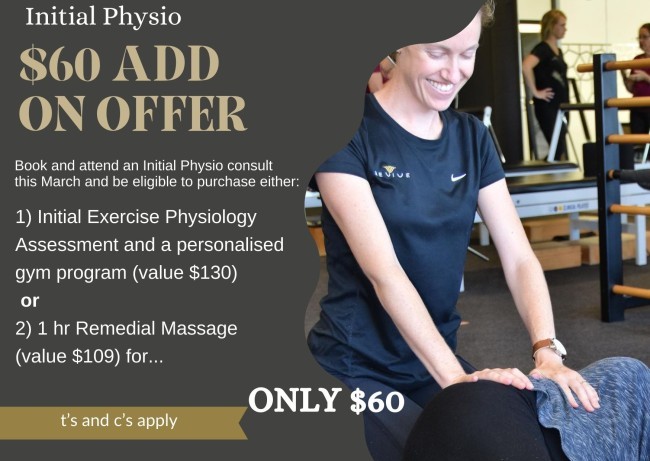
|
The Pillars of Health: Pain, Mood, and Weight:
1. Pain Management: Quality sleep is intricately linked to pain management. During the deep stages of sleep, the body
undergoes crucial repair processes, including the restoration of tissues and the release of growth hormone. This restoration is vital for
managing chronic pain conditions such as arthritis or musculoskeletal issues. Lack of sleep can exacerbate pain perception, making it
essential to prioritize restful sleep to alleviate discomfort and enhance overall well-being.
2. Mood Regulation: The relationship between sleep and mood is profound. Sleep deprivation has been closely linked to increased irritability, anxiety, and a higher susceptibility to stress. Adequate sleep allows the brain to process emotions and consolidate memories, contributing to a more balanced and resilient emotional state. By recognizing the impact of sleep on mood regulation, individuals can empower themselves to prioritize rest, fostering a positive mental outlook.
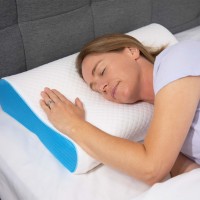
3. Weight Management: Weight management is a multifaceted challenge, and sleep plays a crucial role in this aspect of our health. Sleep deprivation disrupts hormonal balance, leading to an increase in appetite and cravings, particularly for sugary and high-calorie foods. Additionally, fatigue from lack of sleep may reduce motivation for physical activity. By embracing healthy sleep habits, individuals can support their weight management goals, contributing to a holistic approach to overall health.
HINTS AND TIPS TO IMPROVE YOUR SLEEP
|
.png)

OUR BIG PILATES PACKS ARE ON SALE
UNTIL THE END OF MARCH !
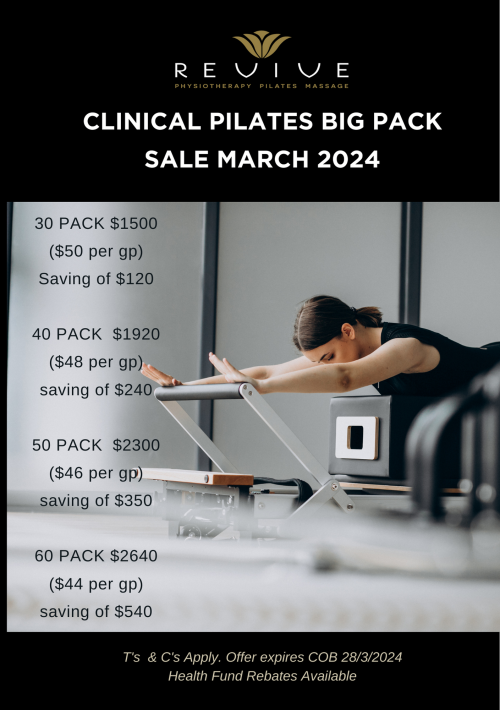
STAFF SPOTLIGHTS

OLIVIA
Physiotherapist Ashgrove – ( Dance
Physio)
Olivia graduated as a physiotherapist from Griffith University in 2021. While studying, Olivia had been our regular Saturday Pilates
instructor and created close relationships with our clients while assisting them in achieving their goals.
Olivia's first love is ballet. She trained at the School of Alberta Ballet in Canada where she grew up prior to relocating back to Australia
with her family. She has a passion for movement which stems from her background in various dance styles and believes strongly in the role
that exercise plays in injury management and prevention as well as health and wellbeing.
Liv is our resident Dance Physio and conducts our pre-pointe assessments and is available for dance physio consultations.

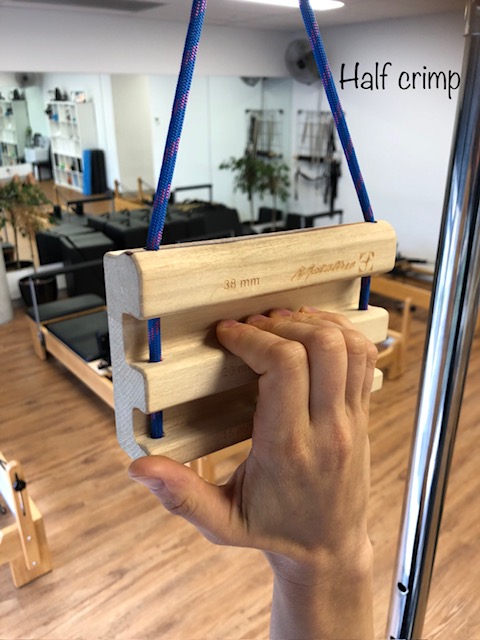
MARY
Physiotherapist West End – (Climbing
Physio)
Growing up in the USA, Mary completed her Bachelors of Exercise Science in 2009 from the University of Massachusetts Amherst. She completed her Doctor of Physiotherapy degree from Bond University in 2015.
Mary enjoys treating a wide variety of musculoskeletal conditions and assisting with injury prevention. Some of her experience lies with being a certified strength and conditioning specialist(CSCS) in the US. She played Division 1 field hockey at Umass Amherst for 4 years while completing her Exercise Science degree. After graduating, she utilized this by coaching college and club field hockey along with creating functional exercise and strength programs.
Mary's passion lies with functional exercise and movement based treatments combined with a manual therapy approach, including manual
techniques and dry needling.
She enjoys applying a holistic approach to treatment, utilizing Pilates and assessing biomechanics and postures. She is an APPI trained pilates instructor, completing Matwork levels 1-3 in 2017.
Her special interest areas include rock climbing injury management including fingers, wrists, hands and all musculoskeletal injuries.
Mary is an avid rock climber and can almost always be found rock climbing outdoors around Southeast Queensland in her free time. She enjoys training and climbing at Urban Climb during the weekdays with friends.

RUNNING ASSESSMENTS HALF PRICE IN MARCH
Poor running technique can be a contributing factor to injury, resulting in time off from training and interruption of your routine. For athletes or serious runners, poor technique can be what's holding them back from performing injury free at their best.
Depending on your current situation and goals, the benefits of a running assessment include:
- Improving your ability to run more efficiently for longer
- More sustainable movement patterns - learn to use and recruit your larger muscle groups
- Ease of running - it will feel easier, therefore allowing you to move better and for longer
- Observe and analyse your running style through video
.svg)
.jpg)
